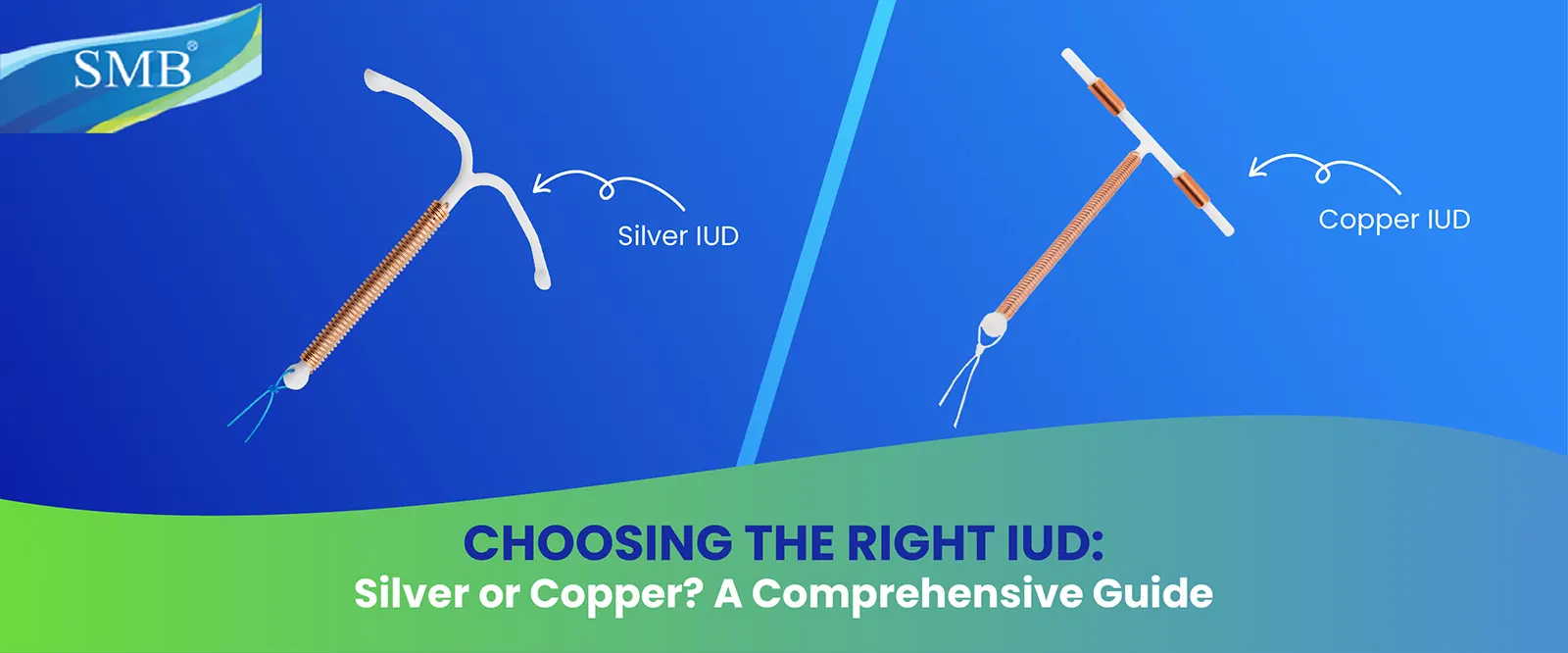For those exploring long-term and reliable contraception options, intrauterine devices (IUDs) offer an effective, hormone-free solution. Among non-hormonal IUDs, Copper IUDs and the relatively newer Silver IUDs are gaining attention. Deciding between these two requires understanding their unique features, benefits, and suitability for individual needs. This guide dives into the details to help you make an informed choice.
What Is an IUD and How Does It Work?
An IUD is a small, T-shaped device inserted into the uterus to prevent pregnancy. Unlike hormonal options, Copper and Silver IUDs rely on their materials' natural properties to disrupt sperm activity, reducing the chances of fertilization.
- Copper IUDs: Use copper’s sperm-repellent properties, creating an inhospitable environment for fertilization.
- Silver IUDs: Combine silver and copper, leveraging silver’s antibacterial properties to reduce certain side effects like inflammation.
Both are long-term, reversible methods, offering protection for 5 to 10 years.
Silver IUD: Features and Benefits
The Silver IUD (e.g., SMB Silver IUD TCu 380Ag) includes a silver core combined with copper. Here are its key advantages:
Antibacterial Properties:
- Silver helps combat bacterial growth, reducing the risk of infection.
- This feature makes it an excellent choice for women sensitive to infections or seeking additional peace of mind.
Fewer Side Effects:
- Silver’s presence reduces the chance of excessive uterine inflammation, a common issue with traditional copper IUDs.
- It’s a more comfortable option for individuals prone to heavy cramping or irritation.
Longevity and Effectiveness:
- Protects against pregnancy for up to 5 years, with over 99% effectiveness.
- Ideal for individuals seeking reliable, low-maintenance contraception.
Copper IUD: Features and Benefits
The Copper IUD (e.g., SMB Copper T 380A) has been a trusted non-hormonal birth control option for decades. Its benefits include:
Proven Longevity:
- Lasts up to 10 years, making it a cost-effective, one-time investment for women who prefer minimal intervention.
Emergency Contraception:
- Works as an effective emergency contraceptive if inserted within five days after unprotected sex.
- A great option for dual functionality as regular contraception and emergency backup.
Hormone-Free Solution
- Unlike hormonal methods, Copper IUDs do not alter your natural cycle, making them a suitable option for women avoiding synthetic hormones.
Affordability:
- Typically more affordable compared to silver or hormonal IUDs, ensuring accessibility for a broader population.
Silver vs. Copper IUD: Key Differences
When choosing between these two options, understanding their differences is crucial:
| Feature |
Silver IUD |
Copper IUD |
| Core Material |
Silver + Copper |
Copper only |
| Longevity |
5 years |
10 years |
| Side Effects |
Reduced inflammation, fewer cramps |
Possible heavy cramps, inflammation |
| Cost |
Higher than copper IUDs |
Generally more affordable |
Who Should Choose a Silver IUD?
- Women prone to infections or heavy cramping.
- Individuals seeking an alternative to pure copper devices for reduced inflammation.
- Individuals seeking an alternative to pure copper devices for reduced inflammation.
Who Should Choose a Copper IUD?
- Women seeking a highly cost-effective, long-term option.
- Individuals comfortable with minor cramping and willing to manage possible inflammation.
- Those requiring dual functionality as emergency contraception and regular use.
The IUD Insertion Process
Both Copper and Silver IUDs share the same insertion process, performed by a healthcare provider. It includes:
- Preparation: A pelvic exam ensures the device is suitable for you.
- Insertion: The IUD is placed through the cervix into the uterus using a small applicator.
- Post-Insertion Care: Users may experience mild cramping or spotting, which usually resolves within days.
For a smooth experience, discuss your medical history and any concerns with your doctor.
Making the Right Choice
Both the Copper and Silver IUDs are excellent non-hormonal birth control options, but your lifestyle, health needs, and budget will play a key role in the decision.
- Choose a Copper IUD if you prioritize cost-efficiency and long-lasting protection.
- Opt for a Silver IUD if you value reduced side effects and added antibacterial properties.
Remember, it’s always best to consult with a healthcare provider to determine the best choice for your individual needs.
When deciding between the Silver IUD and Copper IUD, understanding their unique features and benefits can simplify your choice. Whether you value the longevity of the Copper IUD or the reduced side effects of the Silver IUD, both options provide reliable, long-term contraception without the need for hormones. Take the time to assess your priorities and consult your doctor to make the best decision for your reproductive health.
